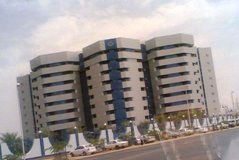Sudan’s central bank restricts foreign currency transactions
June 4, 2007 (KHARTOUM) — Sudan’s central bank said on Monday it had imposed restrictions on foreign currency transactions, a move money traders said would harm their businesses and create a black market.

The decree, which came into effect on May 29, aims to end capital flight and bring foreign currency flows back within the banking system.
“We decided to come to these policies because according to the statistics that we have now from the exchange bureaux and from the banks shows that most of the resources of the foreign currency goes into channels which are not clearly defined,” said Badr Eddin Abbas, deputy central bank governor.
He said the central bank needed to monitor foreign exchange flows in the country.
“They (forex bureaux) get the foreign currency and they sell it to some foreign accounts, some of it goes as capital flight outside the country and some … for other functions or activities which are not known to us,” Abbas told Reuters.
The move came just days after U.S. President George W. Bush tightened sanctions against Sudan as part of an effort to increase pressure on Khartoum to resolve the conflict in its war-ravaged western region of Darfur.
Abbas said the policy was not related to the sanctions. However the embargo hinders foreign exchange transfers, especially of U.S. dollars, to Sudan.
“The new policy is more regulation, more discipline for the market,” the deputy governor said.
Foreign exchange bureaux will still be able to sell small amounts of cash to traders and people traveling abroad for purposes such as medical treatment, pilgrimage and tourism, Abbas said.
Foreign exchange bureaux described it as an attempt to undermine their business, arguing that they served a useful purpose supplying cash to importers and travelers going to destinations that are not serviced by Sudanese banks.
Abdul Hamid Abdul Bagi, chairman of the union of Sudanese foreign exchange bureaux, said the new policy would create a black market for foreign currencies and strengthen the dollar against the Sudanese pound.
“We fear that demand will move from the foreign exchange bureaux to the black market and this will lead to an increase in exchange rates,” Abdul Bagi told Reuters, referring to a strengthening of all foreign currencies against the Sudanese pound.
Abbas said the policy would not affect exchange rates and that there was no ceiling on the amount of cash foreign exchange bureaux will be allowed to handle in a single transaction.
But Abdul Bagi estimated transactions above $30,000 would not be allowed.
He said importers or travelers who are not able to get enough cash through legitimate channels would be encouraged to go elsewhere, creating a black market.
In the 1990s the government took extreme measures to stamp out a thriving black market in foreign currency, even hanging people for possessing large amounts of dollars. The black market ended mid-2005, but some Sudanese banks have been short of foreign currency in recent months.
Sudan is mostly a cash economy largely cut off from Western financial systems because of the U.S. embargo. Credit cards are almost impossible to use and cost of financial transfers are unusually high. Many foreign banks refuse to transfer money here.
Because of banking difficulties, many importers prefer to buy foreign currency at exchange bureaux and carry suitcases of hard cash outside Sudan to purchase goods, bypassing Sudan’s banks.
The U.S. dollar has fallen more than 20 percent against the Sudanese pound over the past two years and some banks have been short of dollars. In contrast foreign exchange bureaux have enjoying booming business, which the central bank says has spurred capital flight.
Sudanese exporters have suffered as the pound has strengthened.
The foreign trade minister this week announced a huge trade deficit of $2.4 billion in 2006 up from $1.3 billion in 2005, according to local press reports.
($1 = 2.01 Sudanese pounds)
(Reuters)
